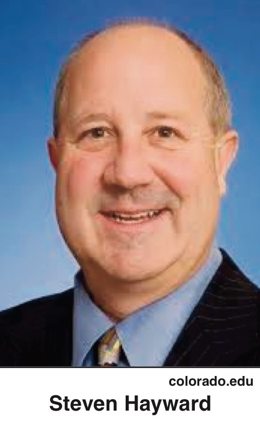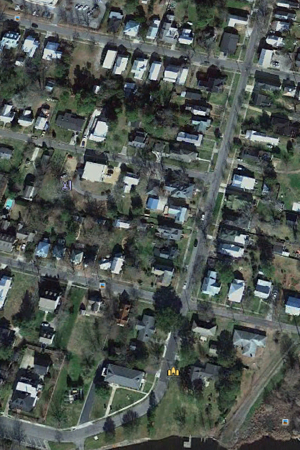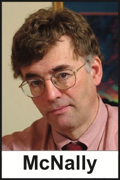Rascals case in brief
In the beginning, in 1989, more than 90 children at the Little Rascals Day Care Center in Edenton, North Carolina, accused a total of 20 adults with 429 instances of sexual abuse over a three-year period. It may have all begun with one parent’s complaint about punishment given her child.
Among the alleged perpetrators: the sheriff and mayor. But prosecutors would charge only Robin Byrum, Darlene Harris, Elizabeth “Betsy” Kelly, Robert “Bob” Kelly, Willard Scott Privott, Shelley Stone and Dawn Wilson – the Edenton 7.
Along with sodomy and beatings, allegations included a baby killed with a handgun, a child being hung upside down from a tree and being set on fire and countless other fantastic incidents involving spaceships, hot air balloons, pirate ships and trained sharks.
By the time prosecutors dropped the last charges in 1997, Little Rascals had become North Carolina’s longest and most costly criminal trial. Prosecutors kept defendants jailed in hopes at least one would turn against their supposed co-conspirators. Remarkably, none did. Another shameful record: Five defendants had to wait longer to face their accusers in court than anyone else in North Carolina history.
Between 1991 and 1997, Ofra Bikel produced three extraordinary episodes on the Little Rascals case for the PBS series “Frontline.” Although “Innocence Lost” did not deter prosecutors, it exposed their tactics and fostered nationwide skepticism and dismay.
With each passing year, the absurdity of the Little Rascals charges has become more obvious. But no admission of error has ever come from prosecutors, police, interviewers or parents. This site is devoted to the issues raised by this case.
On Facebook
Click for earlier Facebook posts archived on this site
Click to go to
Today’s random selection from the Little Rascals Day Care archives….
Click for earlier Facebook posts archived on this site
Click to go to
Today’s random selection from the Little Rascals Day Care archives….
Chapel Hill therapist was nothing if not certain
Nov. 2, 2011
Post on hidden mysteries.org (1995):
“Aside from the children and their parents, others are deeply disappointed by the N.C. Supreme Court’s decision not to (overturn) the reversals by the Court of Appeals.
“Superior Court Judge Marsh McLelland, who heard the Little Rascals case the first time, wrote in a letter to the Chief Justice of the Supreme Court: ‘Your refusal to review the Kelly and Wilson reversals by the Court of Appeals is legally and morally reprehensible.’
“Once more, the Edenton children find themselves as much on trial as their alleged perpetrators, if not more so.”
ANN EARLE
Letter to the editor of the News & Observer of Raleigh (May 16, 1996):
“As a psychotherapist who treats many child victims and adult survivors of sexual and ritual abuse… I am incredulous that so many people support Robert F. Kelly….
“There is ample historical and anthropological evidence that ritual abuse has existed for centuries…. Unfortunately, day care centers are optimal settings for such perpetrators.
“If there is indeed a ‘witch hunt’ going on, it’s actually aimed at abused children and those who advocate for them.”
ANN EARLE, C.C.S.W., B.C.D.
Chapel Hill
Letter to the editor of the News & Observer of Raleigh (June 4, 1997):
“Investigators should not ask leading questions, of course, but even if they did it is difficult to imagine how a young child could come up with graphic details of sexual activity if nothing happened. Child sexual abusers and pornographers routinely incorporate fantasy to entice children to cooperate and render them less believable if the child ever tells.
“Why are journalists so quick to believe alleged abusers and discount sexual abuse allegations by children?”
ANN S. EARLE
Chapel Hill
Letter to the editor of the News & Observer of Raleigh (January 15, 1999):
“In reality, false allegations of sexual abuse by preschool children are rare.
“I have spent three years researching and editing a book on ritual abuse allegations. Ample evidence supports the existence of such abuse in day care centers, in spite of how bizarre it may sound.
“Robert Kelly was found guilty by a jury of his peers in a lengthy trial. This verdict was overturned only on a technicality.
“Finally, there is obviously significant evidence to charge Kelly in a case unrelated to Little Rascals (charges dropped eight months later). We should consider these facts before concluding that the alleged abuses at Little Rascals were due to a ‘hysteria’ fueled by a ‘rumor mill.’ ”
ANN EARLE, C.C.S.W., B.C.D.
Chapel Hill
As these comments suggest, certainty in the pervasiveness of ritual abuse extended well beyond those therapists directly involved in the Little Rascals case.
Did Ann Earle, a board member of the International Council on Cultism and Ritual Trauma, ever change her mind? If so, she seems not to have shared the news.
News media newly skeptical about sex allegations?
 Dec. 3, 2014
Dec. 3, 2014
“I was in graduate school in Southern California 30 years ago when the McMartin Preschool scandal erupted, featuring tales of Satanic rituals, underground tunnels, group sex with animals and children, and various acrobatic acts that would challenge Cirque du Soleil, all believed credulously by the media and California prosecutors….
“There was something so literally incredible about (such) ‘Satanic ritual abuse’ cults that serious doubts and questions should have been raised right at the outset.
“Some hard questions are starting to be asked about the latest sequel to the Salem witch trials – the college campus ‘rape culture’ hysteria…. The Rolling Stone story about an especially brutal gang rape at the University of Virginia is provoking considerable backlash– with a few critics suggesting the entire story might be a hoax ….
“It took years for the ‘Satanic child abuse crisis’ to collapse, and several months for the Duke lacrosse scandal to turn around. What is interesting about the UVa story is how quickly it is facing credible challenge….”
– From “The Spirit of Salem Lives On” by Steven Hayward at powerlineblog.com (Dec. 2)
Portrait of a town haunted by hindsight

Google Earth
June 29, 2014
“(The Little Rascals Day Care center) is red brick, with plate glass windows on the front. The two-story structure is located on East Eden Street, amid mostly modest one-family homes, oaks, azaleas and crape myrtles, just a few blocks from the beautiful bay and downtown.
“The neighborhood is quiet now, but as the case unfolded during the last two years, journalists from time to time set upon the area, seeking eyewitnesses to the alleged incidents. Several residents recently told a visitor they had seen none of the alleged acts.
“For some, hindsight is powerful in the wake of the allegations. Lenora Smith, who lives next door to the center, voiced ‘surprise’ at the charges but does remember that ‘a few things I saw were kind of unusual.’
“What?
“Well, Robert Kelly owned a plumbing business, but ‘at times he stayed over there (at the day-care center) a lot,’ she said….
“Some people here admit to being a bit jumpy since the allegations surfaced.
“Debbie Jones said, ‘I get paranoid.’ Extending her hand, palm down, she made it tremble, saying: ‘I’m like this if I’m with my kids in a public place.’
“In a building on the town’s main thoroughfare, South Broad Street, a young boy who looked about 5 years old, bolstered her point. As he walked out of an office into a hall, apparently heading for the bathroom, he looked over his shoulder and said stoically to a woman: ‘If I don’t come back, call the police.’”
– From “Child Abuse Charges at Day-Care Center Divide Formerly Close-Knit Community” by Lee May in the Los Angeles Times (June 8, 1991)
If only reality had offered such vivid details….
 Jan. 9, 2013
Jan. 9, 2013
“One question that arises from studies on children’s suggestibility is whether they document false memories or merely false reports. Do children really believe that the fictional events happened? Or do they merely say so to please the interviewers?
“Consistent with the false memory interpretation, approximately one-third of the children in these studies continued to insist that particular events had really happened to them even after they were told those events were not real….
“Lacking any obvious motivation to lie, these children appeared to have developed false memories, perhaps confusing the products of their repeated attempts to visualize the events with the products of direct experience….
“Professionals were no better than chance at discriminating false from true reports. The credibility of a child’s account was related to the amount of perceptual detail mentioned in the child’s narrative. The more details, the more professional tended to believe the narrative, regardless of whether it was true.”
– From “Remembering Trauma” by Richard J. McNally (2003)
To better understand how the Little Rascals therapists went so wildly astray, give that last paragraph a second reading. “Professionals were no better than chance at discriminating false from true reports” – and they were mesmerized by the “perceptual detail” in those tales of sharks and spaceships.











0 CommentsComment on Facebook